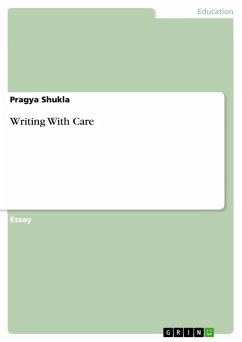Essay from the year 2011 in the subject Didactics - English - Literature, Works, Ranchi University , course: Literature, language: English, abstract: to learn wisdom, guides us when we are happy or sad. (1) Book reading leaves an indelible impression upon the minds of the readers. It helps to shape our professional and personal life. There is at least one crucial book in every reader’s list that helps to shape them. E.M Foster’s A Passage to India led Wendy Doniger to study Sanskrit at Harvard and become the President of the Association for Asian Studies—and also reconnected her unexpectedly to her own Jewish roots. After reading The Secret Garden Christine A Jenkins switched from being a children’s librarian to seek out gay/lesbian literature for the young readers. Susan Lohafer asserts: “A story creates a small world, a fake world, a tragic or a crazy one: it may be familiar, bizarre, tangible, abstract, reported or dreamed. It may be but the weirdest fragment, yet it will cast a rounded shadow on our minds...” (2) Understanding the impact of reading on the mind of the reader, writing for children becomes a very difficult task. Only those who have been interested in the education of a family, who have patiently followed children in their various phases of reasoning, who have regularly studied their thought process and feelings—those who understand with what ease and rapidity the early association of ideas are formed are eligible to take up the Himalayan task. The authors must understand that the reading of their text will help in the development of the future taste, character and happiness. They must beware and acknowledge the dangers and difficulties of such an undertaking. Award winning children’s writer Katherine Paterson states in a State of Wonder, her fascinating book on writing for children. “Mythology and fairy tales deal directly with archetypes...they help children...to face and conquer their inner dragons.”(3) Parents of children are always very careful of not exposing the young minds to vice. It is however best that they receive an early shock with the representation of what they are to avoid. There is always a big gap between innocence and ignorance. This can be done effectively through stories. But then the exposure has to be tempered—calculated. To prevent the ideas of morality and of triumph of good over evil from tiring the ear and the mind, it is essential to make the stories dramatic, to keep alive hope, fear and curiousity.But the authors must keep from exhibiting false hopes which can never be realized.

